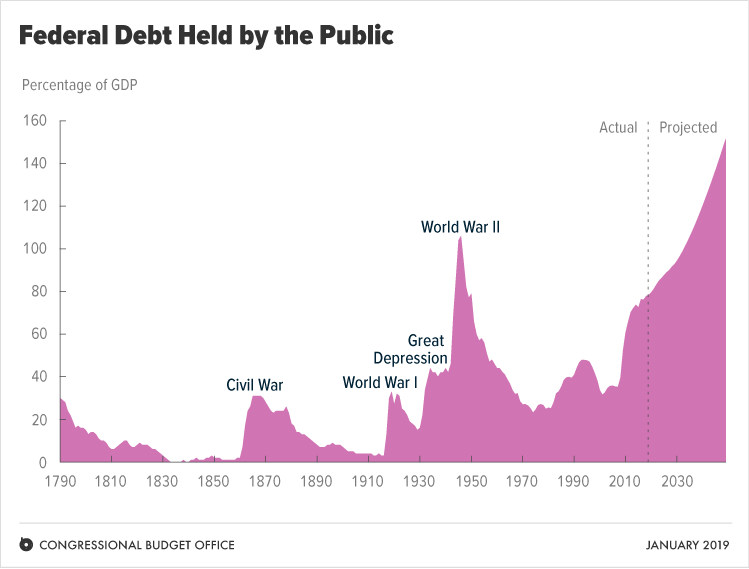Business
U.S. national debt tops $23 trillion for the 1st time

The public debt held by the United States has surpassed $23 trillion for the first time, an increase of nearly 100 percent in less than a decade and up more than one trillion this year alone, according to the U.S. Treasury Department.
The total public debt was $23,008,409,564,494.99 on Friday, of which $16.98 trillion is debt held by the public and the remaining $6 trillion are intergovernmental holdings. This is up more than a trillion when compared to February 12, when the national debt reached $22 trillion for the first time.
The national debt nearly doubled during the presidency of Barack Obama, with a record deficit of $1.4 trillion in 2009, but the debt has continued to rise at an accelerating rate under President Donald Trump. The Republican overhaul of the U.S. tax code in December 2017 is forecast to raise the deficit by $1.8 trillion through 2027.
This year’s deficit is expected to be $984 billion, the largest budget deficit in seven years, according to the Treasury Department. The federal budget deficit is expected to exceed $1 trillion each year beginning in 2022, according to a recent report from the non-partisan Congressional Budget Office (CBO).
History of the U.S. national debt
- 1783: $43 million (the first public debt)
- 1800: $82.9 million
- 1835: $0
The entire public debt was paid off under President Andrew Jackson. - 1845: $15.9 million
- 1860: $64.8 million (before the Civil War)
- 1865: $2.6 billion (after the Civil War)
- 1893: $1.5 billion
- 1914: $2.9 billion (before World War I)
- 1919: $27.3 billion (after World War I)
- 1930: $16.1 billion
- 1939: $40.4 billion (before World War II)
- 1946: $269.4 billion (after World War II)
- 1963: $305.8 billion
- 1975: $533.1 billion
- 1982: $1 trillion
- 1996: $5 trillion
- 2008: $10 trillion
- 2017: $20 trillion
The debt held by the public is expected to reach $27.3 trillion by the end of 2027, according to CBO. This does not include debt issued to government accounts, such as Social Security trust funds, because they don’t affect the economy directly and have no effect on the budget. Taken together, it would push the total debt well above $30 trillion by the end of 2027.


-

 Health5 days ago
Health5 days agoFrance confirms 2 MERS coronavirus cases in returning travelers
-

 Health7 days ago
Health7 days ago8 kittens die of H5N1 bird flu in the Netherlands
-

 Entertainment5 days ago
Entertainment5 days agoJoey Valence & Brae criticize DHS over unauthorized use of their music
-

 Legal1 week ago
Legal1 week ago15 people shot, 4 killed, at birthday party in Stockton, California
-

 US News7 days ago
US News7 days agoFire breaks out at Raleigh Convention Center in North Carolina
-

 US News2 days ago
US News2 days agoMagnitude 7.0 earthquake strikes near Alaska–Canada border
-

 Legal4 days ago
Legal4 days agoWoman detained after firing gun outside Los Angeles County Museum of Art
-

 Health6 days ago
Health6 days agoEthiopia reports new case in Marburg virus outbreak




